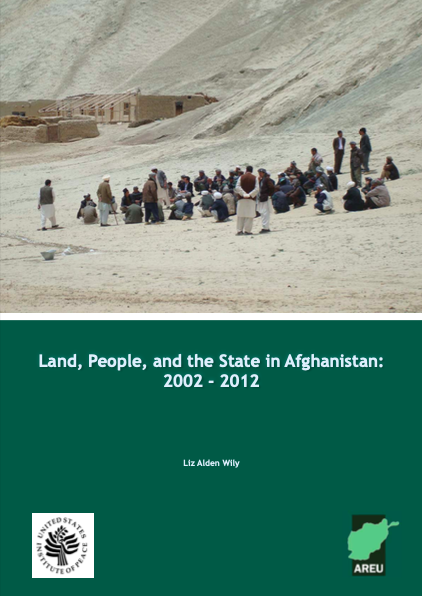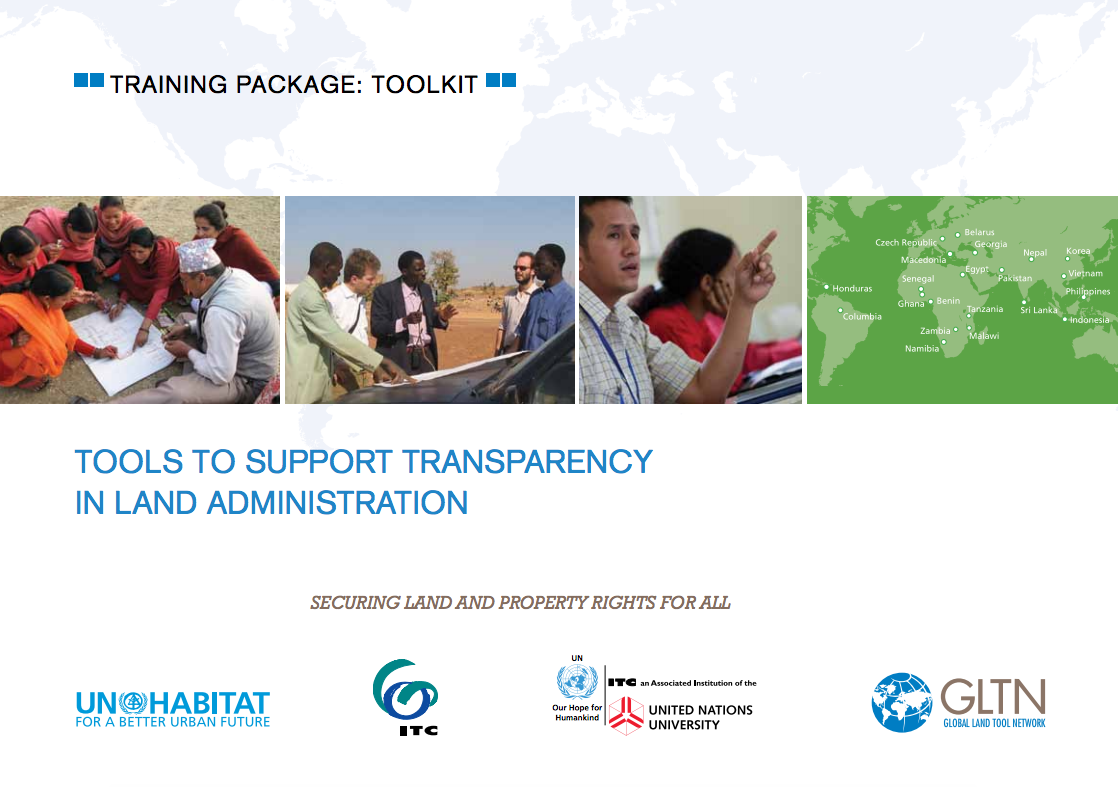Tools to Support Transparency in Land Administration: Trainer's Guide
This trainer's guide is complementary to this training toolkit. It is part of an approach that aims to sensitize government agents about land administration, develop their capacity to address issues of corruption and to enhance transparency in the land sector. It focuses specifically on land administration with a view to filling the capacity development gap in the land administration sector. Training content covers key themes clustered into different training sessions related to land governance, transparency, land administration and tools that could help bring about transparency.






